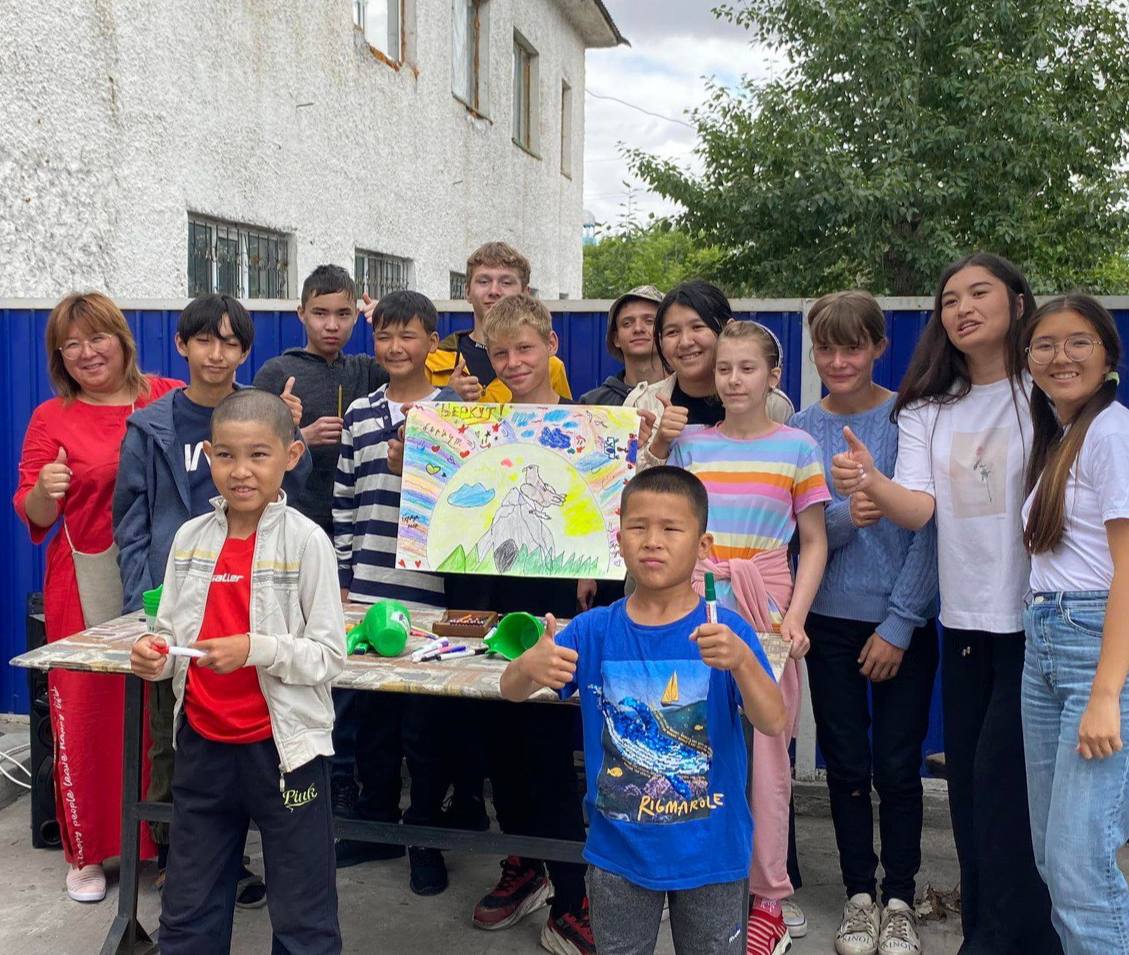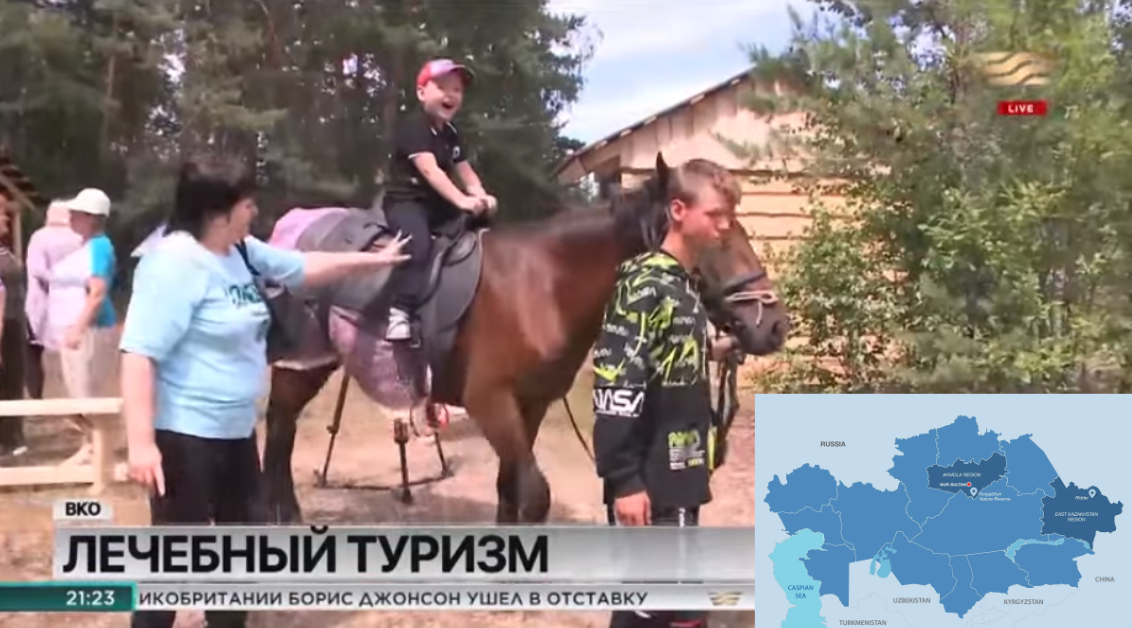NUR-SULTAN – A new recreation area built in the national style offers hippotherapy for people with disabilities as rehabilitation in the town of Ridder in the East Kazakhstan Region, reported the Khabar TV channel on July 7. The service is available both for adults and kids.
The term hippotherapy comes from the Ancient Greek words “hippos” (horse) and “therapy”(treatment). It is a form of medical treatment, which uses horse riding to develop and engage sensory, neuromotor and cognitive systems to promote functional outcomes in individuals with mental and physical disabilities.
The founders of the recreation center – a young entrepreneur named Dmitry Koltsov and his adviser Natalia Meshkova – have been running the project for three years. They said the project is aimed at developing the country’s cultural tourism.
The mom of 4-year-old Leonid Teplinsky, Elena Bespalova, said that despite her son not being able to walk, he was able to ride a horse easily.
“This was the first time he rode a horse and liked it very much. I did not even expect that he would be able to do it himself, without my help. In general, it was very good and exciting,” Bespalova said.
Among the latest examples of how children and adults with disabilities can be integrated into society is the Korgalzhyn Environmental Observatory. Located near the Korgalzhyn Nature Reserve in the Akmola Region, it kicked off on July 6 the second season of the Young Ornithologist eco-camp for children with mental challenges.
The Korgalzhyn Nature Reserve is home to more than 350 species of birds, almost 78 percent of the total national biodiversity.
Twenty-five pupils came from Karaganda Region’s special boarding schools to observe birds in their natural habitat and solidify their knowledge through theatrical competencies for three days. The program also included many activities aimed at team building and developing vital skills.

Participants of the second season of Young Ornithologist eco-camp came from Karaganda Region. Photo credit: Korgalzhyn Environmental Observatory
The social project seeks to use innovative educational methods to integrate children with disabilities into the eco-activists community and involve young naturalists in practical ornithology. In July, the eco-camp is expected to accept 105 participants from the Akmola, Karaganda and North Kazakhstan Regions.
At present, 700,000 people with disabilities live in Kazakhstan. Sixty percent of them are of working age, 26 percent are of retirement age and 14 percent are children.
The government organizes various activities and events to help people with disabilities better integrate into society, including the opening of out-patient rehabilitation centers for children with disabilities or creating special exhibits in museums for children with visual impairments.
By 2025, 22,000 social facilities are expected to become accessible for people with physical challenges as part of Kedergesiz Keleshek (Barrier-Free Future) project.

